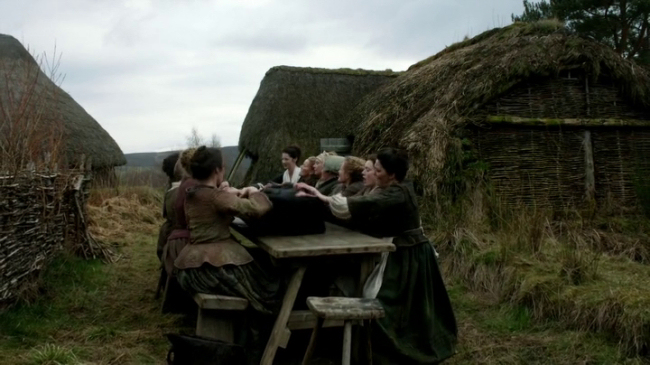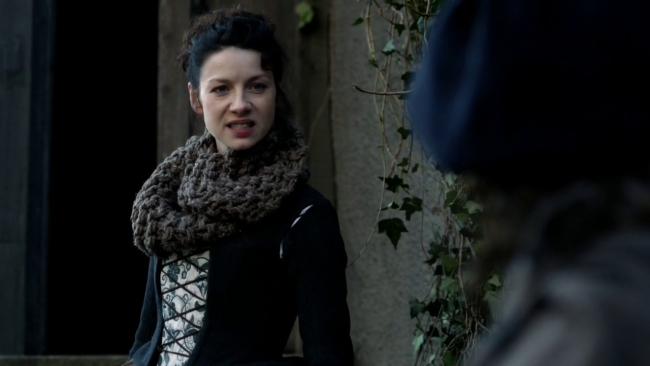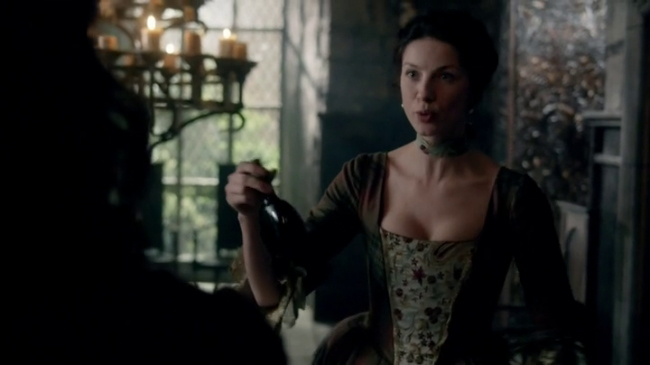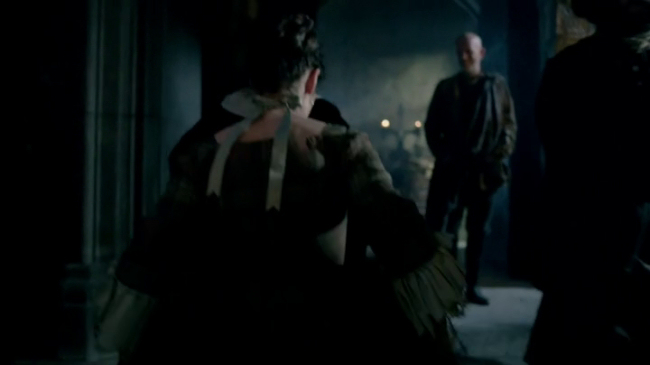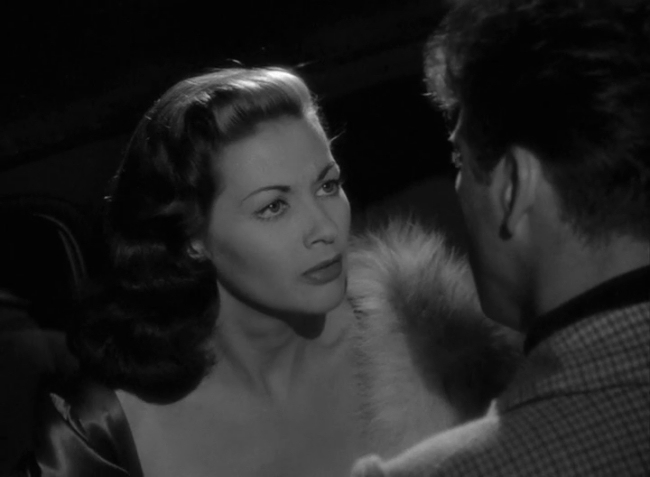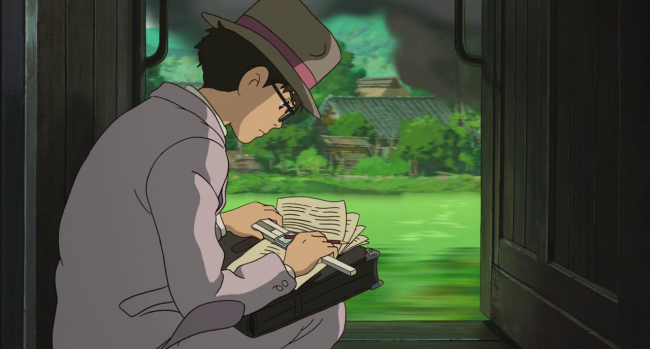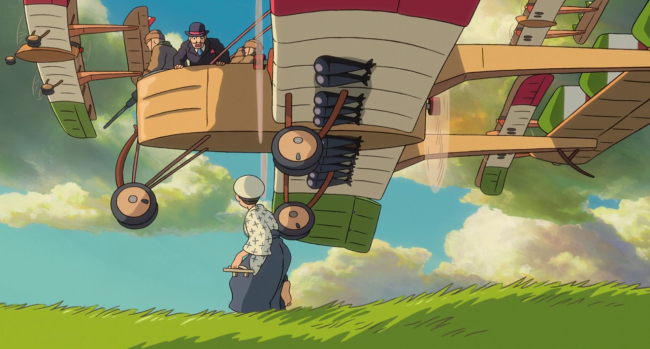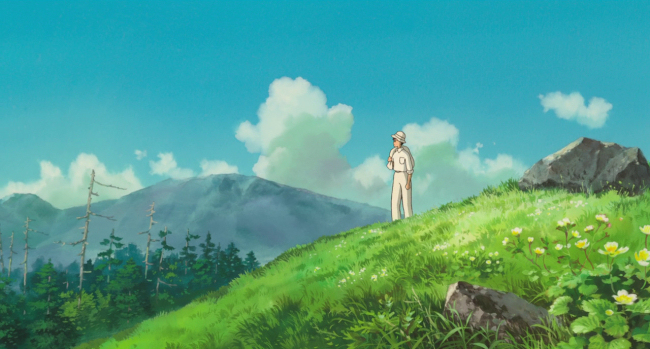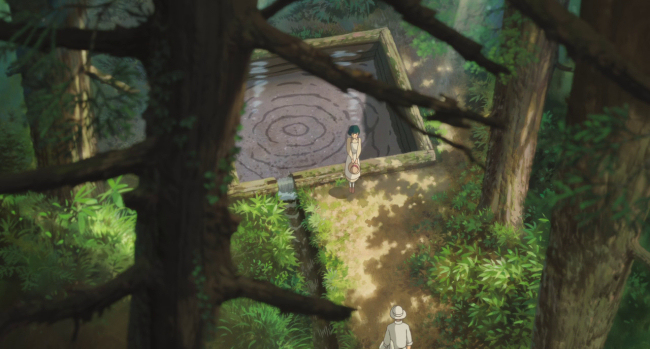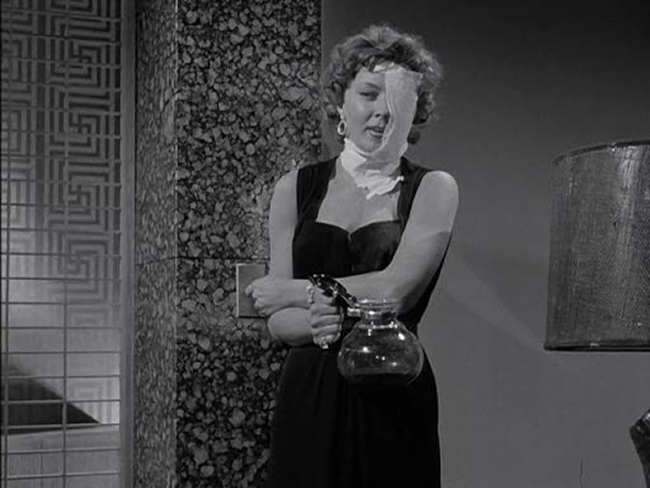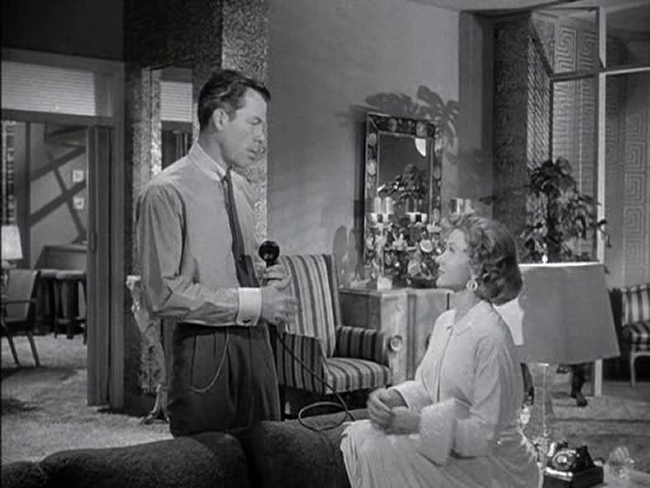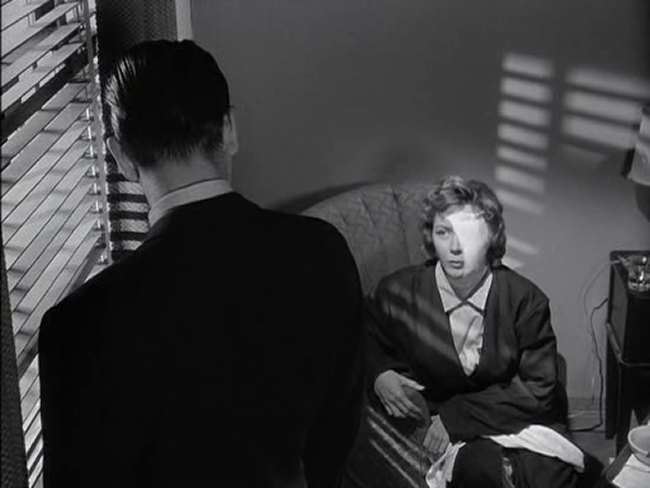
How can a film be a strip tease? Films of the French New Wave are enjoyable not because of their post modern, self aware nature but because of the love and enthusiasm the filmmakers feel for their subjects. Yet constant acknowledgement of film as artifice remains an integral part of what is effective about the enduring films of the movement. Jean-luc Godard's 1961 film A Woman Is a Woman (Une femme est une femme) is like an affectionate strip tease. A woman who enjoys taking her clothes off not only because she knows the man she likes is watching and likes to see her naked but also because she knows he likes her clothes, too.
And the movie is about a stripper named Angela played by Anna Karina, Godard's soon to be wife. The wink she gives the camera is simultaneously a wink for Godard and, as Godard intended, a wink to the audience to let them know the filmmakers know what they came for and they're happy to give it.
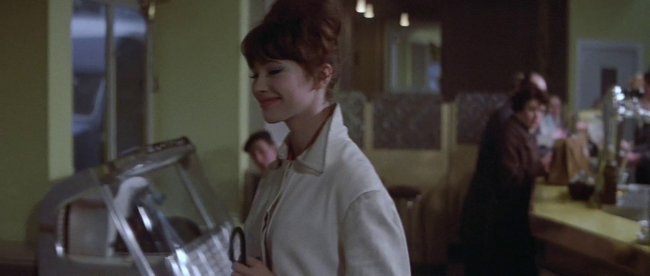
Part of Angela's routine is that she sings and the camera cuts back and forth from her singing to the audience reaction. Every time it cuts back to her, the background music goes away. This sort of self aware presentation of the score is typical of Godard's films from the period and he does it over and over again. But here, in addition to the cognisance of the artificial quality of film is the charm of hearing Karina singing in rough a cappella.
It's this allure of realism, rather than the awareness of artificiality, that made New Wave so influential. Karina and Jean Paul Belmondo, who's also in this film, wear the medium loosely, always poised to undress. Belmondo casually chats with a character played by Jeanne Moreau and asks her how shooting on Jules and Jim is going, a Truffaut film Moreau was working on at the time. Belmondo has a cool, awkward, precarious grace. His reference to the real world outside the film is nonetheless a line from the script he's performing, he's such a natural and confident actor he still carries it as his character.

The film works also because Godard doesn't linger. A strange, magic doorway in a strip club that instantly removes or changes a woman's outfit who walks through it is disclosed casually as the camera pans along, as though it's inconsequential.
There's a seeming comment on the critical concept of the gaze years before it was established in the specialised circles it has currency in to-day as the film's other male lead, Jean Claude Brialy, watches a stripper in apparent boredom and she stands watching him in equal disinterest.

Each time the camera cuts from his close up, the woman loses a garment until she's topless.

The impression this creates is that her clothing is being removed as a result of his attention. That neither party seems particularly moved makes this feel a little like a precursor to the topless woman at the party in Godard's later film Pierrot le Fou whom no-one seems to acknowledge is topless, as though it's become normal in the course of the continually more revealing trends of fashion.

The life, the film seems to say, isn't in the naked breasts but in the pleasure one feels for seeing them or showing them. In much the way this film succeeds as a musical despite having only one song. A sequence where Karina and Belmondo self consciously pose as Gene Kelly and Cyd Charisse is alive with the fact that Karina, Belmondo, and Godard love movies with Gene Kelly and Cyd Charisse.

Twitter Sonnet 664
Lost apricot torrent blinds're blocked now.
Tornado stucco clatters on Bull Street.
Plane propeller tongue blades whap the mouth plough.
Abject wonder reddens the ripest beet.
Retired blank wire hangers drop TIEs.
Destroyers envy the bottomless stars.
Bleached calaveras attract ruby flies.
Carded granite wool lowers onto Mars.
Transposed ponytail buttons hold no slacks.
Paralysed lips compile hard liquor.
Sideless shapes dodge all geometry tax.
Peaty shoes and socks embrace the wicker.
Final truth begins with painted quarries.
Critics dream unconditional glories.











